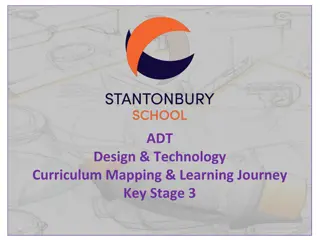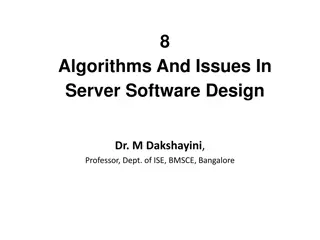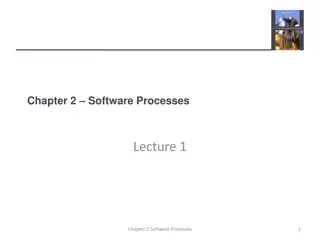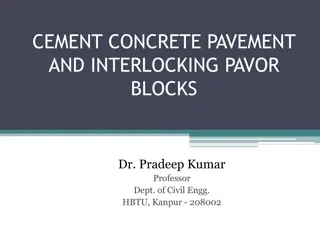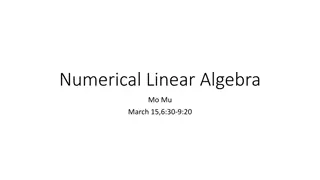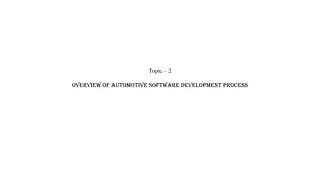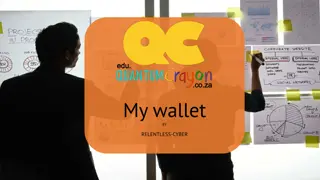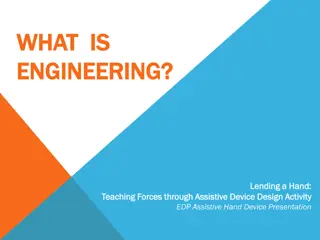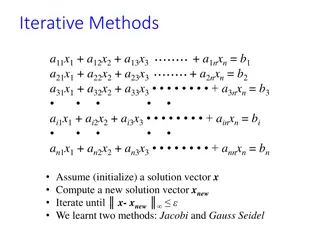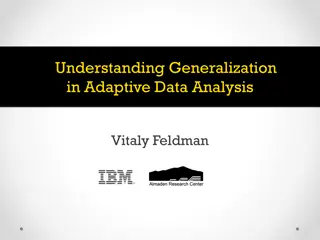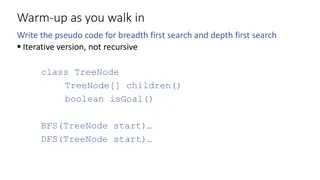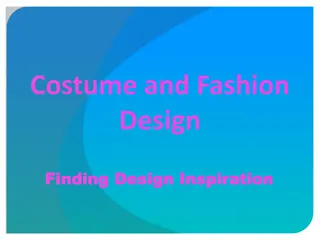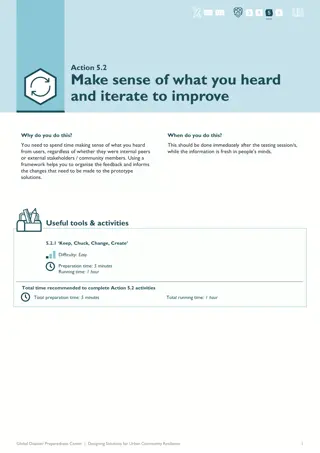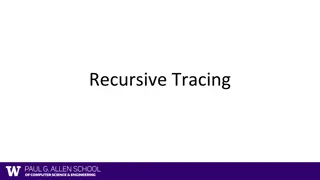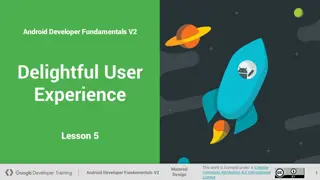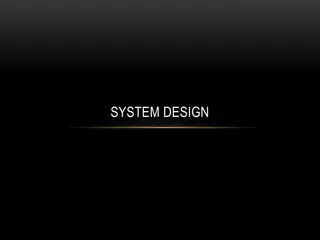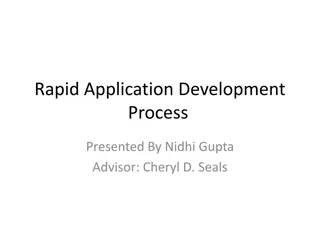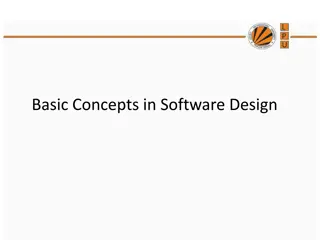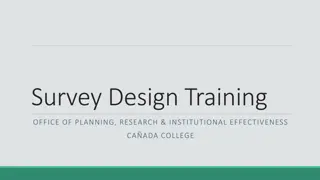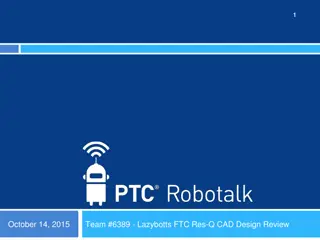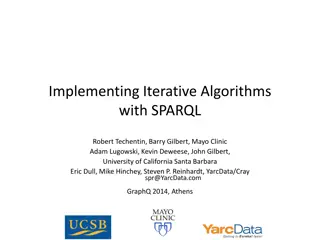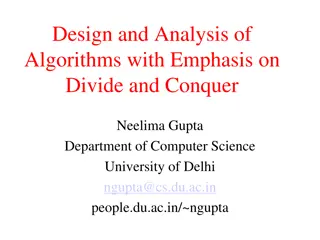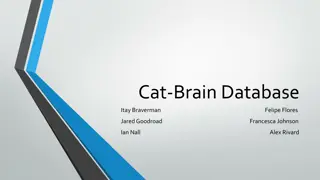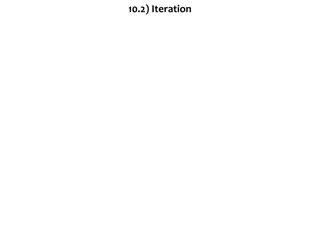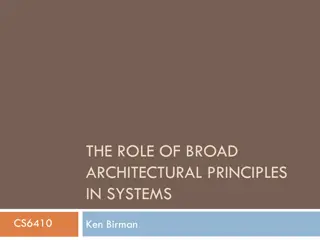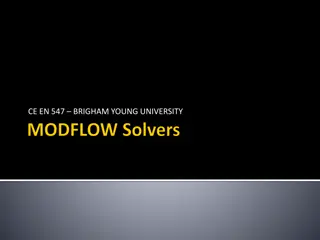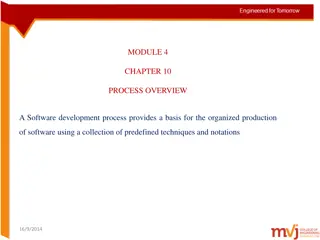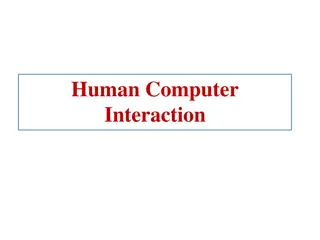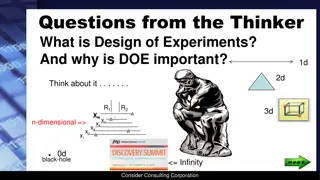GCSE Design Technology Knowledge Organiser and Course Structure Overview
In this detailed knowledge organiser, find information about the GCSE Design Technology course structure, learning objectives, mission statement, and core technical principles for KS4 students. The course emphasizes iterative design cycles, creative thinking, problem-solving, and addressing environm
7 views • 53 slides
Crafting Success How Effective Persona Creation Drives Design Success
Consagous Technologies UI UX Experts has ability to create experiences that resonate with users on a deep and personal level. Effective persona creation is the cornerstone of this success, enabling designers to understand their audience, guide design decisions, foster empathy, and drive iterative im
2 views • 2 slides
Design & Technology Learning Journey at Key Stage 3
Explore the ADT Design & Technology Curriculum Mapping and Learning Journey at Key Stage 3, focusing on the iterative design process. Dive into the essential concepts, skills, and experiences that students will encounter in this engaging educational pathway.
0 views • 26 slides
Issues and Algorithms in Server Software Design
The content discusses fundamental issues in server software design such as connectionless vs. connection-oriented access, stateless vs. stateful applications, and iterative vs. concurrent server implementations. Various server algorithms like iterative and concurrent servers are explained with their
3 views • 44 slides
Software Processes and Models
Software processes are structured activities essential for software system development, involving specification, design, validation, and evolution. Various process models and approaches like the Rational Unified Process and agile methods are discussed, highlighting the importance of adaptability in
2 views • 105 slides
Accelerating Game Design: Practical Workshop Overview
Explore a practical workshop outline for accelerating game design, focusing on ideation, user stories, and iterative processes. Learn about ideation cards, their usability, and enhancing game concepts for future projects. Delve into challenges faced post-game release and iterate successful elements
0 views • 22 slides
Guidelines for Design of Cement Concrete Pavement and Interlocking Paver Blocks
This document provides guidelines for designing cement concrete pavements and interlocking paver blocks, covering factors governing design, wheel loads, design period, subgrade characteristics, approximate k values based on CBR values, and the importance of a sub-base below concrete pavements. It em
0 views • 67 slides
Software Engineering Design Principles and Concepts
The chapter discusses the essential principles and concepts in software design, highlighting the four key design models - data design, architectural design, interface design, and component-level design. It emphasizes the importance of traceability to the analysis model, minimizing the gap between so
2 views • 36 slides
Comprehensive Overview of Numerical Linear Algebra Methods for Solving Linear Systems
Explore numerical linear algebra techniques for solving linear systems of equations, including direct and iterative methods. Delve into topics like Gaussian elimination, LU factorization, band solvers, sparse solvers, iterative techniques, and more. Gain insights into basic iterative methods, error
6 views • 12 slides
Advanced Techniques for Quadrotor Flight Control
The research paper discusses thrust mixing, saturation, and body-rate control for precise and aggressive quadrotor flight. It covers system overview, dynamical system modeling, LQR control design, trajectory tracking performance, disturbance rejection, body torque estimation, and iterative thrust mi
0 views • 14 slides
Overview of Automotive Software Development Process
The development of software in the automotive industry is essential due to the increasing complexity of vehicles. This process involves requirements gathering, system design, component development, integration testing, validation, calibration, release, and maintenance. Automotive-specific considerat
0 views • 5 slides
Designing the Perfect Wallet for Mom
Explore the design process of creating an ideal wallet for a partner, focusing on portability and security. Empathize with their needs, define the problem, ideate creative solutions, and gather feedback for iterative improvements. The goal is to address the partner's preferences for a small, durable
0 views • 8 slides
Boat Building Challenge: Build, Float, and Win!
Engage in a boat building challenge where you must construct a boat capable of floating as many pennies as possible within specific dimensions and a budget. Compete in a Float-off and calculate your score based on the number of pennies floated relative to the total cost. Present your results and dis
0 views • 7 slides
Engineering: Concepts and Processes
Engineering is the application of science, math, and technology to design solutions for everyday problems, benefiting society. The Engineering Design Process (EDP) involves defining problems, researching, brainstorming solutions, building prototypes, testing, communicating designs, and redesigning a
0 views • 28 slides
Comprehensive Overview of Midterm Review Topics in Data Structures and Object-Oriented Design
Covering topics such as run-time analysis, linear data structures, recursion, trees, priority queues, heaps, maps, hash tables, dictionaries, iterative algorithms, loop invariants, software engineering principles, and important functions in algorithm analysis.
0 views • 86 slides
Iterative Methods in Linear Algebra
Explore the concepts of iterative methods such as Jacobi and Gauss-Seidel for solving systems of linear equations iteratively. Understand conditions for convergence, rate of convergence, and ways to improve convergence speed. Delve into iterative schemes in matrix forms, convergence criteria, eigenv
0 views • 39 slides
Generalization in Adaptive Data Analysis by Vitaly Feldman
Adaptive data analysis involves techniques such as statistical inference, model complexity, stability, and generalization guarantees. It focuses on sequentially analyzing data with steps like exploratory analysis, feature selection, and model tuning. The approach emphasizes on avoiding hypothesis te
0 views • 25 slides
AI Search Algorithms: BFS and DFS Pseudo-code Iterative Version
Explore the iterative versions of Breadth First Search (BFS) and Depth First Search (DFS) with pseudo-code examples implemented for class TreeNode. Understand the concept of TreeNode, children() function, isGoal() method, and apply BFS and DFS starting from TreeNode start.
0 views • 53 slides
Design Inspiration and Elements in Costume and Fashion Design
Dive into the world of costume and fashion design through a visual journey of finding design inspiration, understanding the design process, emphasizing originality, and exploring different sources of creativity. Discover how technology, art, food, history, architecture, and nature can spark innovati
0 views • 45 slides
Iterative Feedback Framework for Prototype Improvement
The iterative feedback framework involves making sense of user feedback using the Keep, Chuck, Change, Create (KCCC) model to iterate and enhance prototype solutions. This process helps organize input from testing sessions, informing necessary modifications for better outcomes. The framework emphasi
2 views • 26 slides
Recursive and Iterative Factorials through Tracing
This content provides an in-depth exploration of recursive and iterative factorial functions through tracing examples. The explanations are accompanied by visual aids to help conceptualize the iterative and recursive processes of calculating factorials. By comparing the two methods side by side, rea
0 views • 7 slides
Material Design: Combining Classic Design Principles with Technological Innovation
Material Design is a design language that combines traditional design principles with the possibilities offered by technology and science. It emphasizes visual language, classic design elements, and innovation to create delightful user experiences. The Material Metaphor, Imagery, Typography, Color,
0 views • 34 slides
Comprehensive Guide to System Design Components and Techniques
System design involves the detailed planning and identification of components in an information system, aiming to provide users with a general understanding of the new system. This process includes techniques like flowcharts, prototyping, and component design, covering aspects such as output design,
0 views • 24 slides
Query-Centric Framework for Big Graph Querying
A comprehensive exploration of Google's Pregel system, outlining its design, programming interfaces, vertex partitioning, vertex states, and practical examples like Breadth-First Search. The framework provides insights into large-scale graph processing by thinking like a vertex and leveraging messag
0 views • 30 slides
Rapid Application Development (RAD) Process
Rapid Application Development (RAD) is a software development process that focuses on minimizing pre-planning and accelerating the software development lifecycle. By involving users early on, utilizing prototyping, and emphasizing user requirements, RAD aims to deliver high-quality systems quickly.
0 views • 63 slides
Ex-ante Evaluation of Bulgaria-The Former Yugoslav Republic of Macedonia IPA CBC Programme 2014-2020
This document outlines the ex-ante evaluation process for the Bulgaria-The Former Yugoslav Republic of Macedonia IPA CBC Programme 2014-2020. It covers key phases, strategic environmental assessment, stakeholder involvement, lessons learned from past programming, program design, findings regarding t
0 views • 15 slides
Basic Concepts in Software Design
Software design involves transforming customer requirements into a form suitable for implementation, with activities categorized into preliminary and detailed design stages. High-level design focuses on module identification and control relationships, while detailed design entails defining data stru
1 views • 24 slides
Survey Design Training for Effective Data Collection
Learn how to conduct surveys effectively by understanding the purpose, developing survey objectives, research questions, and survey questions. Explore survey implementation options, data analysis techniques, and available resources to enhance your data collection process. The iterative nature of the
0 views • 15 slides
Robotics Competition Journey: Team #6389 Lazybotts FTC Res-Q CAD Design Review
Follow Team #6389 Lazybotts from concept to competition as they share lessons learned, design strategies, and their iterative CAD design process in preparation for the RES-Q challenge. Discover insights on robot speed, scoring tactics, and autonomous capabilities, all aimed at achieving success in r
0 views • 32 slides
Implementing Iterative Algorithms with SPARQL
This comprehensive guide explores the implementation of iterative algorithms with SPARQL, focusing on YarcData/Cray's approach to using these algorithms. It covers YarcData's interest in graphs, the Urika appliance, iterative algorithms in machine learning, implementation approach, and algorithms im
1 views • 12 slides
Algorithms Design and Analysis with Divide and Conquer Approach
Explore the intricacies of algorithm design and analysis, with a focus on divide and conquer techniques. Delve into topics such as iterative and recursive algorithms, writing summations, divide and conquer strategy, and more. Discover how to compute large numbers, polynomials, perform searching and
1 views • 15 slides
Cat-Brain Database Project Overview and Development Process
The Cat-Brain Database Project led by Dr. Irina Beloozerova aims to facilitate data sharing among research laboratories. It follows a modified Agile development methodology with rapid prototyping and iterative design. Tools such as Trello and MySQL were utilized. Lessons were learned from Francesca,
0 views • 14 slides
Iterative Root Approximation Using Natural Logarithm
The content covers iterative root approximation using natural logarithm in solving equations. It explores finding roots by iterative formulas and demonstrates calculations to reach approximate values. The process involves selecting intervals to show correct values and ensuring continuity for accurat
0 views • 14 slides
Broad Architectural Principles in System Design
The role of broad architectural principles in system design is crucial for creating large-scale systems. Researchers must define goals and assumptions while considering performance, elegance, and iterative design processes. Understanding critical-path driven processes helps optimize system efficienc
0 views • 50 slides
Iterative Solvers in MODFLOW
In this content, you will learn about the working of iterative solvers, solver parameters, troubleshooting convergence issues, and various solver algorithms in MODFLOW. The iterative tweaking of starting head values, different solver codes like SIP, PCG2, GMG, and their characteristics are explained
0 views • 21 slides
Software Development Process Overview
A software development process provides a structured approach for creating software using predefined techniques and stages such as system conception, analysis, system design, class design, implementation, testing, training, deployment, and maintenance. It involves stages like domain analysis, applic
0 views • 39 slides
Power System Analysis: Lecture on Power Flow
Lecture 12 on Power Flow Analysis in Power Systems covers the use of power balance equations when analyzing complex power consumption and generation. It explains the derivation of real power balance equations for iterative solutions in power flow analysis. The lecture highlights the need for iterati
1 views • 30 slides
Prototyping in Human-Computer Interaction
Design activities in Human-Computer Interaction involve iterative processes of prototyping and evaluation to create user-centric interactive products. Prototyping allows stakeholders to interact with and explore the design's suitability, serving various purposes like testing feasibility, clarifying
0 views • 7 slides
Significance of Design of Experiments (DOE)
Design of Experiments (DOE) is a crucial statistical methodology for testing plans that assess how various factors impact desired outcomes. It involves iterative processes to optimize solutions and make informed decisions based on data analysis results. Learning from historical figures like Edison a
0 views • 16 slides
Insights on Key Concepts in Computer Science
Explore the average scores and reviews by reviewers in EECS 582, along with stats on reviewed papers. Dive into classic principles like simplicity and iterative design, and learn about storage systems, kernels, and more. Uncover the significance of UNIX, relational databases, and file systems in the
0 views • 19 slides


